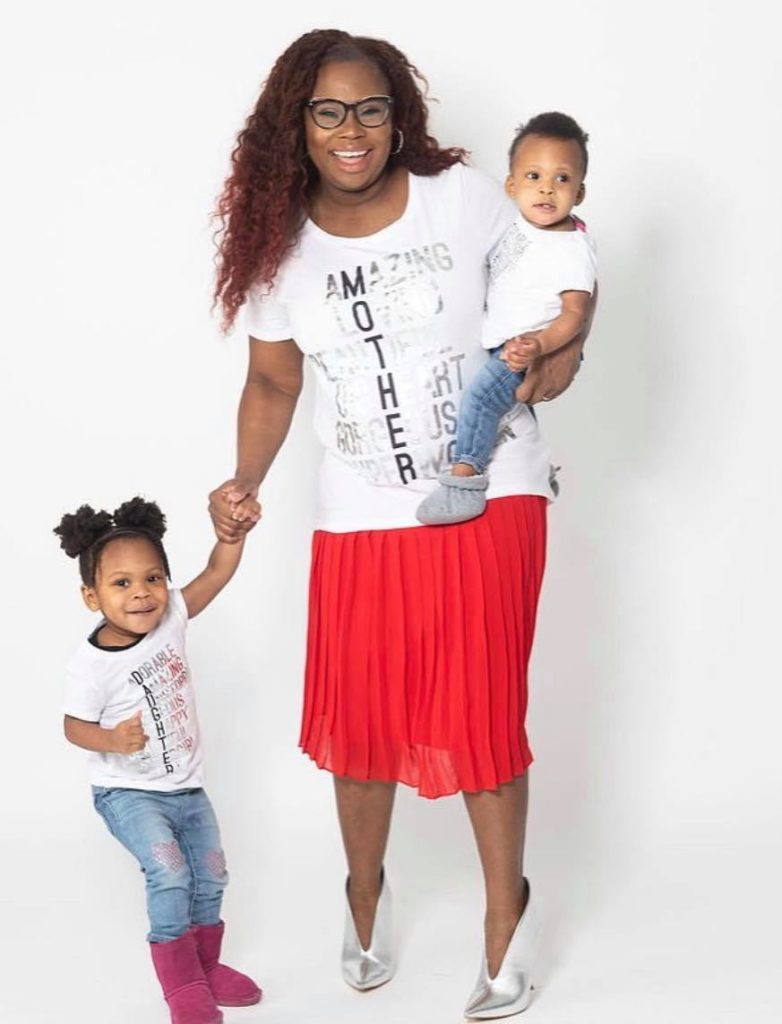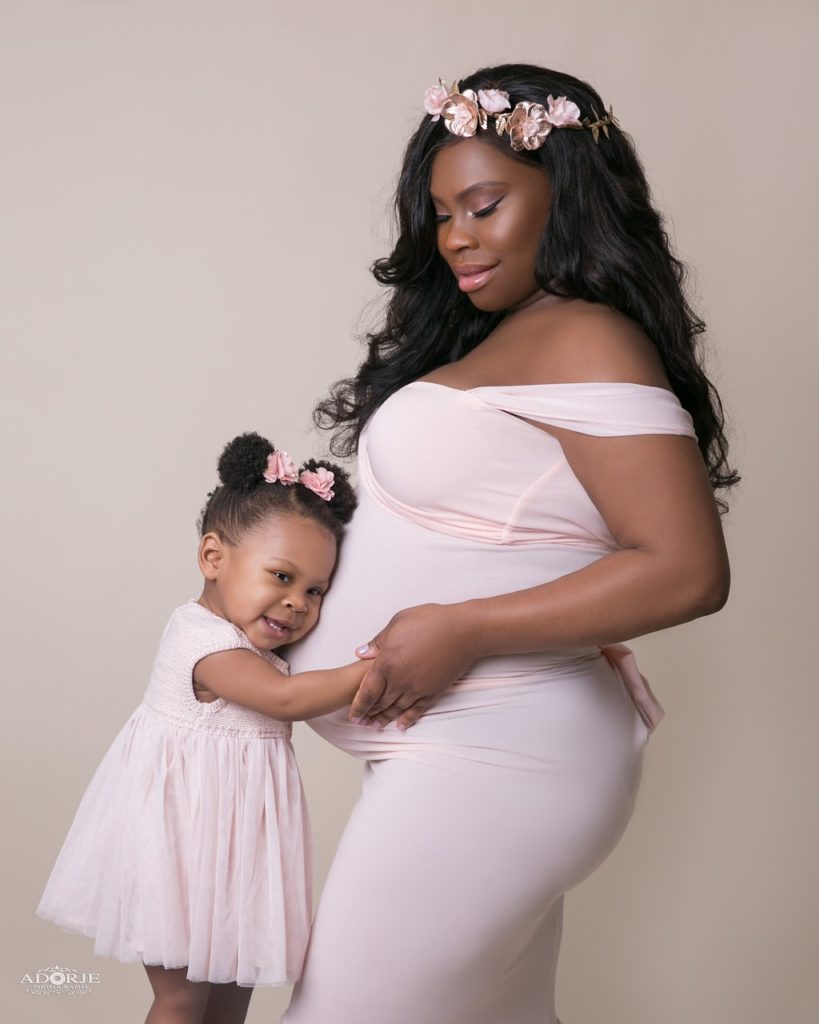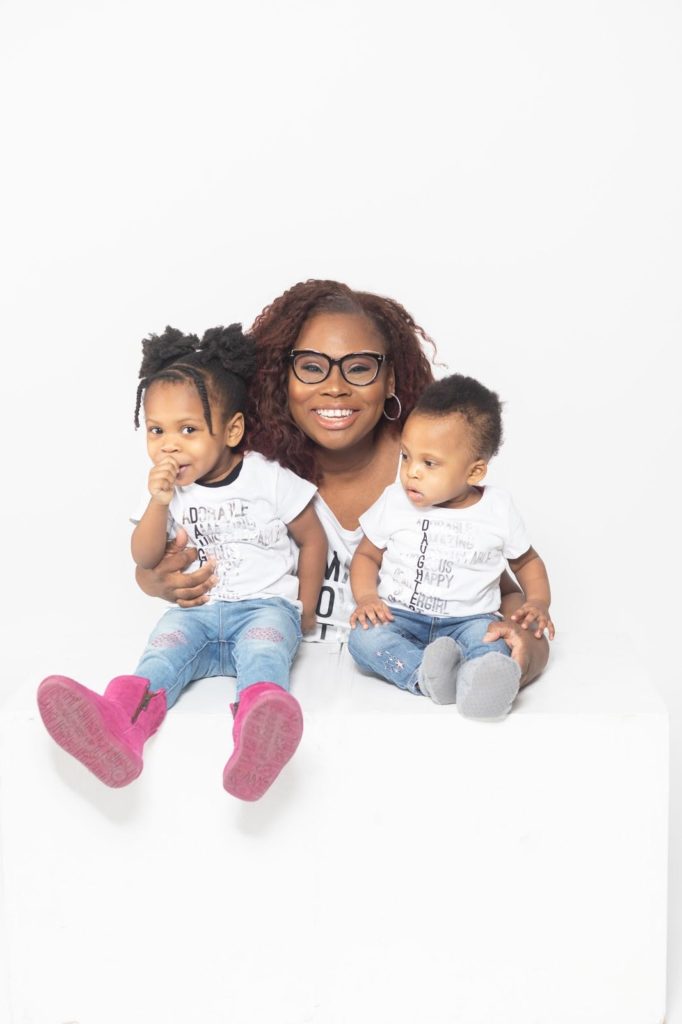
Letitia has been a HER Ambassador since 2021. She is married with two daughters and works as an Academic Librarian. Her family lives in Brooklyn, NY. She joined #TeamHER because she is passionate about helping others.
In HER words: I have two toddlers, ages 2 and 3 1/2. My pregnancy experience with HG caused a lot of mental anguish and resulted in my decision to tie my tubes (despite wanting more children).
During my first pregnancy, I was ready to embrace the joy that so many people raved about. Then week 9 came, and my perfect pregnancy ended abruptly. It would be another few months before I would be diagnosed with HG. The delay in my diagnosis was because I was unaware. Growing up, I’d seen movies where a pregnant woman would throw up, and I perceived this as a typical attribute of pregnancy. Family, friends, colleagues, would tell me it would be better in a few weeks and that the nausea was common. I was confused because I wasn’t just nauseous, I was vomiting, badly. The vomiting persistently got worse.
By the time I reached 20 weeks, the vomiting had become so frequent and severe that I cried a lot. I thought I was weak, but there was something wrong with me. Someone close to me even said, “you are pregnant, that’s what happens.” I was having trouble at work because I was always late and absent due to so many horrible episodes. I dealt with many microaggressions from my supervisor, and at one point she told me she was pregnant before but had a miscarriage. This was a huge fear of mine prior to becoming pregnant, and her words just amplified my fear.

Finally, after crying my heart out and speaking up to a friend in the medical profession, it was suggested I tell my OB what I was going through. Despite never being asked if I suffered with any vomiting or nausea, I finally confessed to my OB what I was enduring and was given a prescription. The prescription decreased my episodes, and I felt there was some improvement. However, my insurance wouldn’t cover the medication since it was not considered a medical necessity. So the remainder of my pregnancy, I was at the mercy of my doctor who provided me with samples until he ran out. For two months, I rationed the little medication that was left. I wasn’t doing well physically or mentally.
There was a point where I was dealing with my rights at work, fighting for the insurance company to cover the medicine, all while trying to cope with being pregnant with HG. Maintaining a social life wasn’t even on my itinerary, and I was becoming more and more isolated and withdrawn each day. Thankfully, my husband was super strong and supportive, but I needed more.
With my second pregnancy, I started suffering immediately. I was vomiting before my pregnancy was confirmed, and when it was confirmed by the OB, I was 4 weeks along. Since I suffered during my previous pregnancy, I was placed on a more aggressive course of medications to try and provide relief. It was rough because this time I had an 8-month-old baby and was breastfeeding, working, and pregnant with HG. Again I had limited help. It was a huge struggle trying to survive as a new mom while pregnant and working out of the home. Although I had a regime of medication with insurance approval, it wasn’t enough. At 30 weeks, I ended up on disability, something I wasn’t even aware was an option with my first pregnancy. Now, the mere thought of ever becoming pregnant completely frightens me because my chances of having HG again are extremely high.

Being diagnosed so late and not knowing this ailment existed contributed to the decline of my mental state. There are so many pregnancy challenges and ailments that are not discussed, and HG is one, yet it affects women greatly, especially Black women who have a greater risk of complications during pregnancy. There’s a need to have conversations about issues around not only Black maternal mental health and but also the real racial disparities and discriminations that exist, particularly in the healthcare system. Some women don’t survive and having access to support can make the difference in survival. There have been many women who have terminated their pregnancies because of this condition. HG is more than morning sickness. Let’s start having real conversations to raise and spread awareness, compassion, and create support and real solutions for women.
With the increase in anti-racist advocacy, awareness of other racial inequalities throughout the country have such as racial disparities in the health care system for BIPOC/BIWOC (Black, Indigenous and People of Color/Women of Color). The US healthcare system often provides inadequate care for BIWOC (and BIPOC), particularly Black women. In addition to inadequate prenatal healthcare, Black mothers are less likely to receive mental health care, especially postpartum. The cultural narrative of “Black women are strong” means Black women are more likely to suffer instead of getting the needed care. At the HER Foundation, we believe this should change and advocate for all women with HG.

